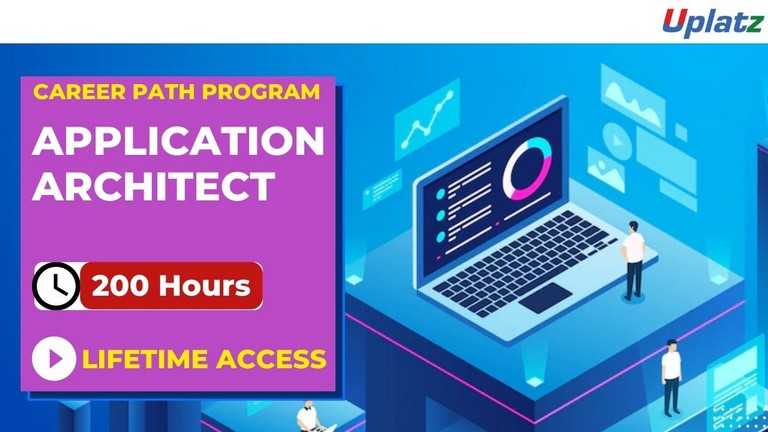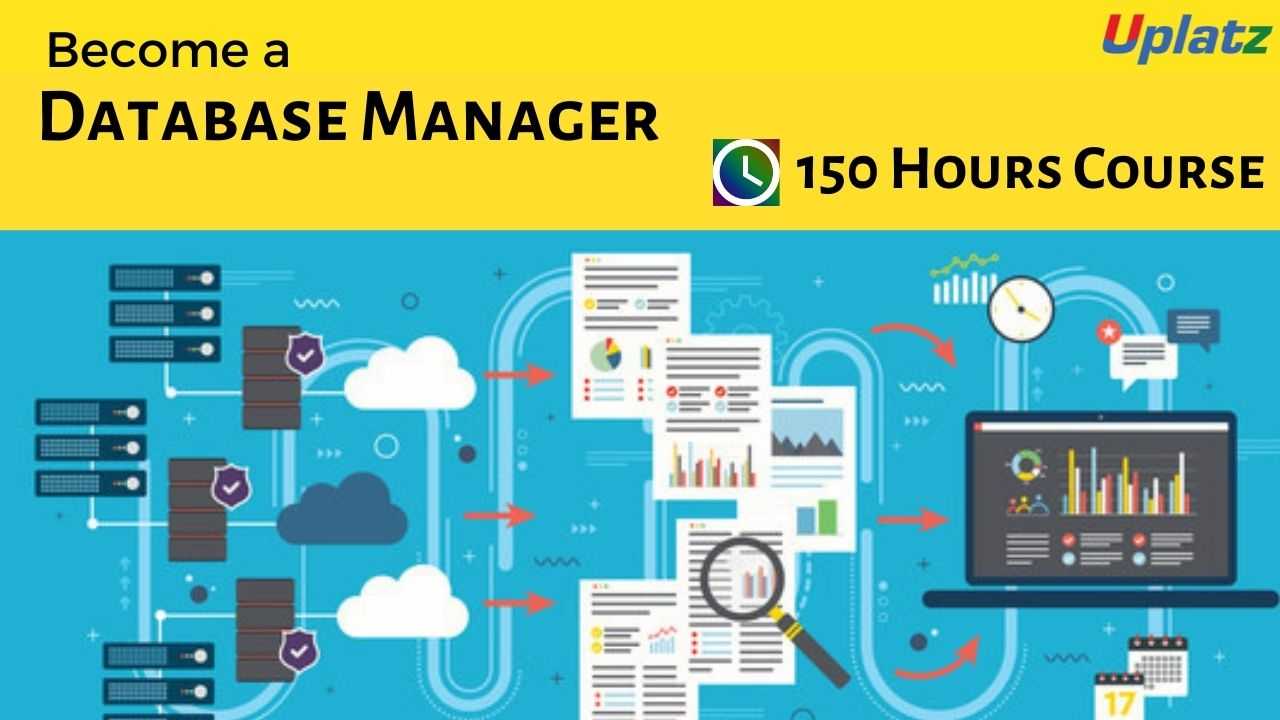Domain Architect Career Path
Master domain-specific architecture and strategic alignment across industries with this in-depth Domain Architect career-building course Price Match Guarantee
Full Lifetime Access
Access on any Device
Technical Support
Secure Checkout
Course Completion Certificate
Price Match Guarantee
Full Lifetime Access
Access on any Device
Technical Support
Secure Checkout
Course Completion Certificate
 93% Started a new career
BUY THIS COURSE (
93% Started a new career
BUY THIS COURSE (USD 45 USD 139 )-
 89% Got a pay increase and promotion
89% Got a pay increase and promotion
Students also bought -
-

- Career Path - Application Architect
- 200 Hours
- USD 45
- 832 Learners
-

- Career Path - Database Administrator
- 50 Hours
- USD 45
- 255 Learners
-

- Career Path - Database Manager
- 150 Hours
- USD 45
- 146 Learners

Domain Architect Career Path – Self-Paced Online Course
Enter the world of specialized architecture with this comprehensive, self-paced course designed to shape you into a high-impact Domain Architect. Learn how to drive business and technical alignment in your chosen field—whether finance, healthcare, data, security, or enterprise software.
This course offers expert-led training on domain-specific architecture, stakeholder collaboration, solution planning, and enterprise alignment. You’ll gain the knowledge to guide complex projects, bridge technical and business needs, and become the go-to expert in your domain.
Delivered through high-quality pre-recorded video lectures, this course is ideal for professionals looking to deepen their expertise, provide architectural guidance, and advance to senior and strategic roles in their field.
Oops! No Video Subscriptions
By the end of this course, learners will be able to:
- Understand the role and responsibilities of a Domain Architect
- Master architectural principles within a specialized business or technology domain
- Translate business goals into domain-specific technology solutions
- Collaborate with cross-functional teams and stakeholders
- Drive architectural consistency, compliance, and innovation
- Provide guidance on solution design, implementation, and integration
- Stay current with emerging technologies in your chosen domain
- Prepare for domain-based certifications and leadership roles
Syllabus:
- Introduction to Domain Architecture
- Overview of domain architecture and its business value
- Role of Domain Architect vs. Enterprise/Solution Architect
- Defining and Understanding Your Domain
- Deep dive into domain modeling
- Scoping business and technical domain boundaries
- Architecture Principles and Governance
- Applying architectural standards and reference models
- Ensuring alignment with enterprise architecture
- Requirement Gathering and Stakeholder Collaboration
- Understanding business needs
- Working with technical teams, analysts, and business leaders
- Solution Planning and Technical Guidance
- Designing scalable, secure, and cost-effective domain solutions
- Tool selection and technology stack alignment
- Domain-Specific Use Cases and Scenarios
- Industry-specific case studies (e.g., healthcare, finance, security)
- Real-world architecture patterns
- Integration, Interoperability & Compliance
- Ensuring domain solutions integrate with enterprise systems
- Meeting regulatory and operational compliance requirements
- Documentation, Roadmapping & Reviews
- Creating architectural artifacts and blueprints
- Conducting architecture reviews and audits
- Emerging Trends and Technologies in Domains
- Staying current with domain-relevant innovations
- Examples: AI in healthcare, blockchain in finance, zero-trust in security
- Career Growth & Certification Preparation
- Navigating architectural career tracks
- Resume building and interview preparation
Upon successful completion of this course, learners will receive a Course Completion Certificate from Uplatz, validating their proficiency in domain-specific architecture, strategy, and implementation.
This Uplatz certification demonstrates your expertise in guiding solutions within a focused business or technical domain, enhancing your credibility with employers and peers. It serves as a valuable asset for career growth in architecture, consulting, and leadership.
The course also prepares learners for certifications aligned with specific domains, such as TOGAF®, SABSA for security, DAMADMBOK for data, or industry-specific programs for finance, healthcare, or manufacturing architecture.
Domain Architects are in growing demand across all industries as organizations require deep expertise to guide technology decisions within specialized areas. Their insights help ensure that technology investments align with business strategy and regulatory needs.
Career Opportunities Include:
- Domain Architect (Finance, Healthcare, Security, Data, etc.)
- Technical Solution Architect (specialized domain)
- Business Technology Architect
- Industry-Specific IT Consultant
- Lead Systems Architect
Industries Hiring Domain Architects:
Banking, healthcare, insurance, retail, telecommunications, defense, manufacturing, public sector, and consulting.
Career Progression Options:
- Senior Domain Architect
- Chief Architect (Domain)
- Director of Architecture
- Enterprise Architecture Consultant
- Strategic Technology Advisor
This course provides the foundational and advanced skills needed to progress from domain-specific roles into enterprise-wide architectural leadership.
1. What is the role of a Domain Architect?
A Domain Architect focuses on a specific business or technical area, ensuring architectural consistency, solution alignment, and domain-specific guidance.
2. How does a Domain Architect differ from a Solution Architect?
A Solution Architect focuses on project-specific solutions, while a Domain Architect oversees architectural strategy and decisions across a business or technical domain.
3. What are key responsibilities in a domain-specific architecture role?
Requirement gathering, solution design, stakeholder alignment, governance enforcement, and ensuring interoperability within and beyond the domain.
4. Why is domain expertise important in architecture?
Deep domain knowledge ensures that architectural decisions meet business needs, regulatory requirements, and industry best practices.
5. What tools and frameworks are commonly used by Domain Architects?
TOGAF, ArchiMate, domain-specific frameworks (e.g., DAMA-DMBOK, HL7), UML tools, modeling platforms, and collaboration tools like Confluence.
6. How do you align domain architecture with enterprise strategy?
By collaborating with enterprise architects, aligning roadmaps, and ensuring architectural decisions support strategic goals and business KPIs.
7. What is a domain reference model?
A standardized blueprint that guides solution architecture within a domain, ensuring consistency and reusability.
8. How do Domain Architects influence cross-functional teams?
Through technical leadership, clear communication, stakeholder management, and continuous engagement across departments.
9. What are common challenges in domain architecture?
Siloed systems, lack of stakeholder alignment, evolving regulatory needs, and managing complexity across legacy and modern systems.
10. How do you stay updated within your domain?
By attending industry conferences, following domain-specific publications, participating in communities of practice, and engaging in continuous education.
1. Who is this course for?
IT professionals, technical leads, solution architects, and consultants aiming to specialize in a specific business or technology domain.
2. What are the prerequisites?
Basic understanding of system architecture and industry practices. Experience in a related domain is helpful but not mandatory.
3. What format does the course follow?
It is a self-paced online course with pre-recorded video sessions and lifetime access.
4. What certificate will I receive?
A Course Completion Certificate from Uplatz validating your domain architecture expertise.
5. Will this course help me get certified?
Yes, it prepares you for domain-related certifications like TOGAF®, DAMA, SABSA, and more.
6. Are real-world examples included?
Yes, case studies and domain-specific scenarios are integrated throughout the modules.
7. Can I change domains later in my career?
Absolutely. This course helps you build transferable architecture skills for use across multiple industries or domains.
8. Will I get hands-on exercises or templates?
Yes, the course includes templates, modeling tools, and real-world use cases for applied learning.
9. How long is the course?
You can complete it at your own pace. Most learners finish it within 6–8 weeks.
10. Is support provided during the course?
Yes, you will have access to expert guidance and learner forums for continuous support.









